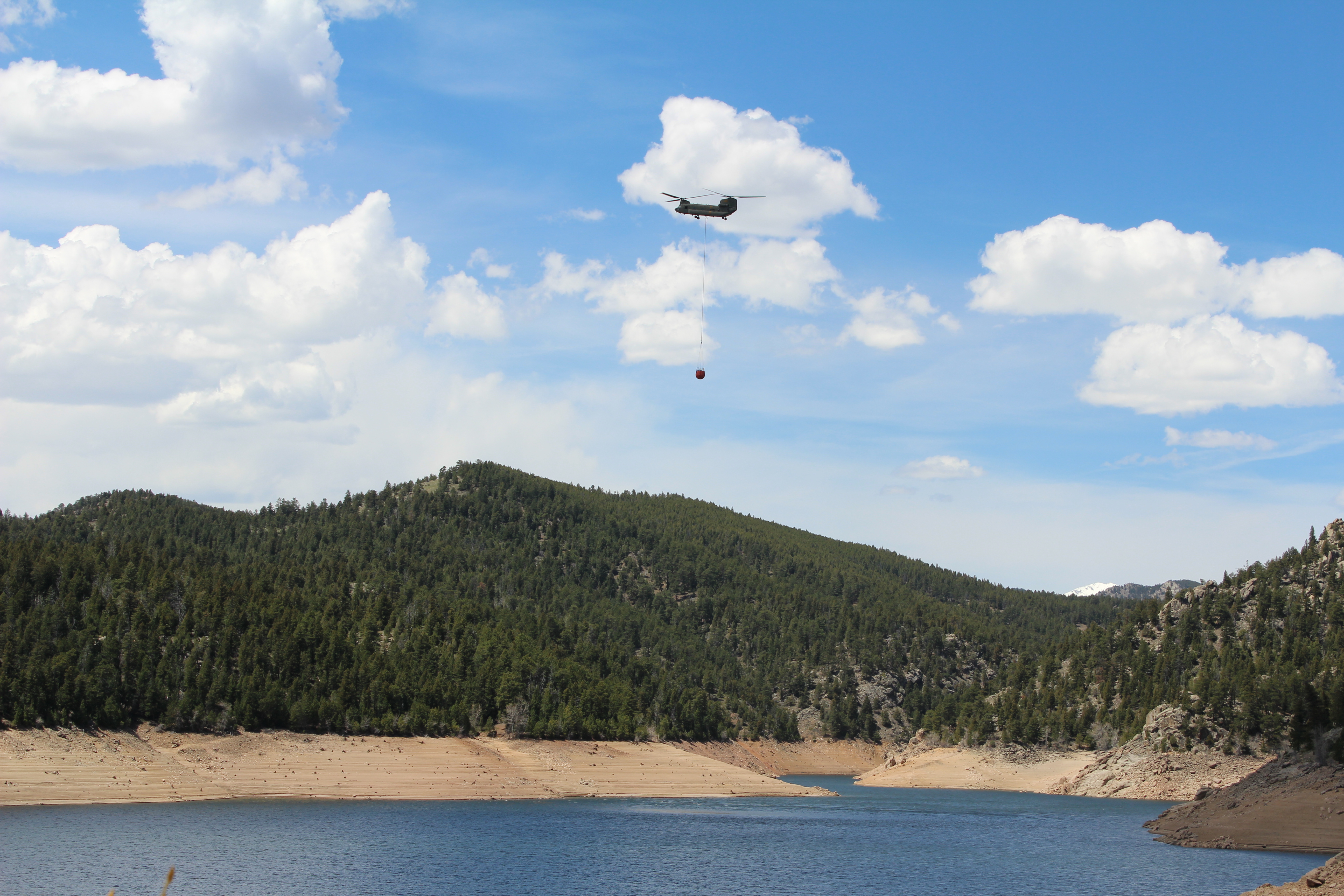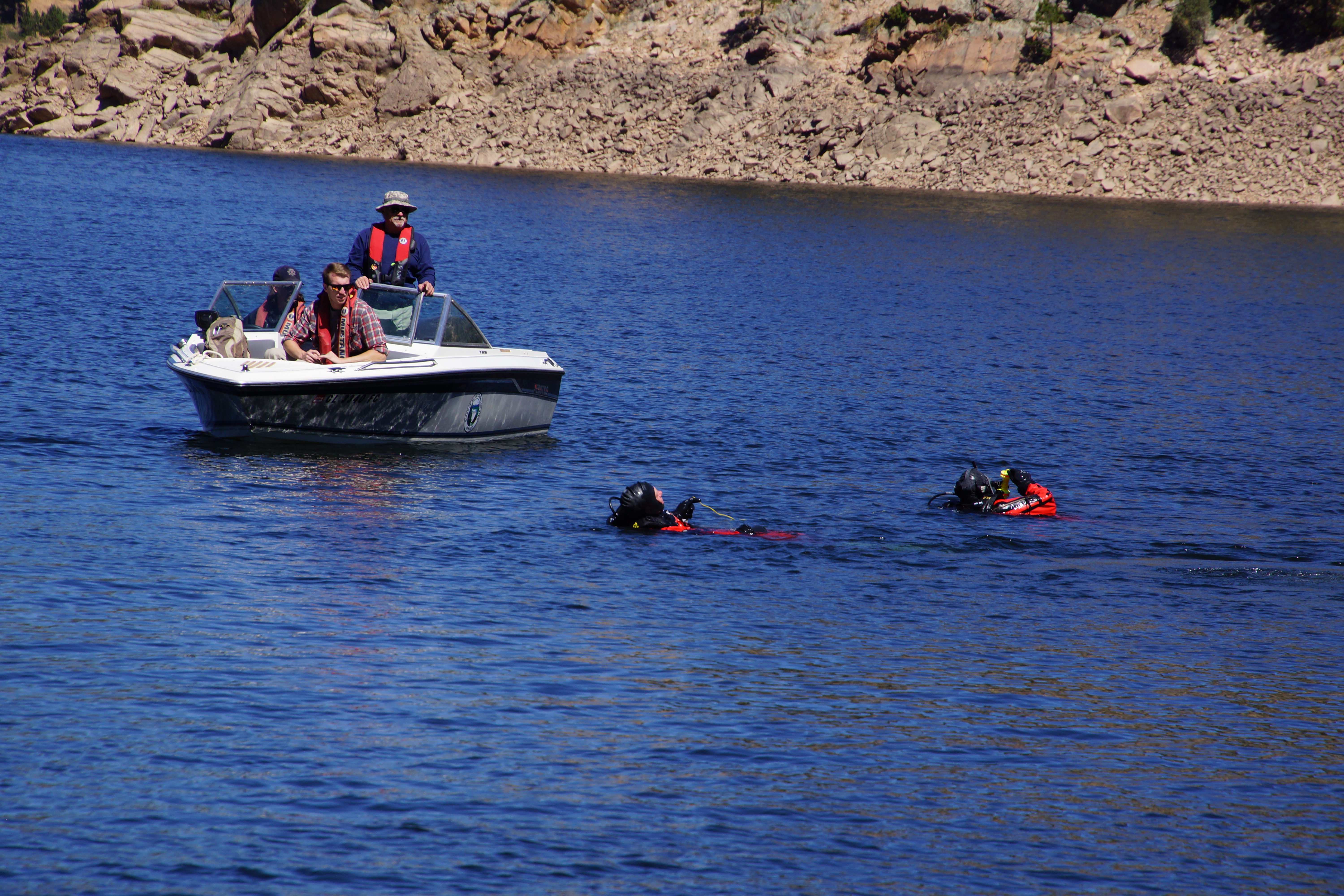
Droppin’ the bucket at Gross Reservoir
Black Hawks, Chinooks and Lakota helicopters spent the weekend hovering over Gross Reservoir, filling buckets of water and tactically pouring them along the shoreline.
Fire-suppression helicopters have been a frequent sight in Boulder County over the last year, assisting in firefighting efforts for two disastrous wildfires.
In March, hundreds of Boulder residents were evacuated from their homes when an improperly extinguished campfire blazed its way through the mountains near downtown Boulder.
This came just months after two men were sentenced for the 2016 Cold Springs fire near Nederland, which burned more than 500 acres and destroyed eight homes.
So why were the helicopters near Gross Reservoir last weekend a welcome site for the community? They weren’t actually suppressing any fires. Instead, they were part of a training exercise with the Colorado National Guard.
“We will use this exercise to qualify and validate our aircrews to ensure they are ready to respond to wildland fires,” said Colorado Army National Guard State Army Aviation Officer U.S. Army Lt. Col. Joshua Day. “Integrating aircrews with ground personnel adds a dynamic and complex layer of realism.”
About 4,500 fires burn an estimated 100,000 acres in Colorado each year. According to the National Parks Service, about 90 percent of wildland fires are caused by humans.
These sobering statistics serve as a reminder that a wildfire can spark at a moment’s notice in our watersheds, near our dams and within the communities we live, work and play, said Ian Oliver, district manager of Denver Water’s source of supply.
“It’s in everyone’s interest to prepare for wildfires, which have become a common threat in our state,” said Oliver. “We’re always ready to support our partner emergency response agencies to ensure we are as prepared as possible to effectively respond during an emergency.”
Like last September when 15 members of the Boulder Emergency Squad dive team strapped on 110 pounds of gear and spent a day training at Gross Reservoir. The reservoir proved to be the perfect training location for the technical dive because of its high-altitude elevation of 7,282 feet and water depth over 300 feet.
“Hosting exercises is a win-win for everyone,” said Oliver. “Emergency responders get real-life training, and also a better understanding of the terrain and access points to our reservoir before an actual emergency.”
Exercises aren’t just for emergency responders. Denver Water’s very own Strike Team — a group of six specially trained caretakers who are able to respond to wildfires that impact Denver Water in a moment’s notice — takes its training very seriously, too. (Watch “In harm’s way, Strike Team keeps the water flowing” to see their training in action.)
Additionally, Denver Water’s emergency management and dam safety teams frequently conduct large-scale exercises at our dams in conjunction with potentially impacted stakeholders and partners. (Watch “When reservoirs go wild” to see hundreds of experts from local, state and federal agencies band together in mock scenarios at Dillon Reservoir in 2014 and Gross Reservoir in 2015.)
“Exercises provide for collaboration between agencies, building relationships and communication, all aspects that are of critical importance during real emergencies,” said Oliver.


